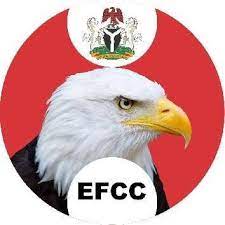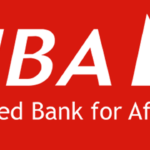Stakeholders, business owners and experts have decried the difficulty in opening corporate/business accounts owing to the anti-money laundering certificate required from the Economic and Financial Crimes Commission (EFCC).
The certificate, known as the SCUML certificate, is obtained from the EFCC as part of requirements to open an account by Designated Non-Financial Businesses and Professions (DNFBPs) in Nigeria.
SCUML, known as the Special Control Unit Against Money Laundering, was established by the Federal Government in September 2005 in compliance with the Money Laundering (Prohibition) Act 2004 which was repealed and amended to Money Laundering (Prohibition) Act 2011(as amended) and most recently, to the Money Laundering Prevention and Prohibition Act, 2022.
SCUML was created as part of measures for the implementation of the Financial Action Task Force (FATF) Recommendations on Anti- Money Laundering /Combating the Financing of Terrorism (AML/CFT) in Nigeria.
The Central Bank of Nigeria (CBN) had, in August 2012, issued a circular FPR/CIR/GEN/Vol.1/028 directing DNFBPs, who are existing financial institutions’ customers, to update their account information with evidence of registration for SCUML.
Since then, any new DNFBP is required to acquire the SCUML certificate in addition to other Know-Your-Customer Certificate (KYC) requirements for opening an account and any bank that defaults would be fined N2m per account.
Checks on the website of SCUML reveal that businesses being regulated by SCUML include dealers in jewelries, luxury goods, chartered/professional accountants, audit firms, tax consultants, clearing and settlement companies, legal practitioners, trust and company service providers, estate surveyors and valuers, hotels and hospitality industry, dealers and miners of precious stones and metals, pool betting, casino and lottery, supermarkets, consultants and consulting companies, construction companies, estate agents, dealers in real estate, importers and dealers in cars and vehicles dealers in mechanized farming equipment and machinery.
Also, it is required for a foundation and nongovernmental organisation although this is not listed on the SCUML website.
The EFCC believes that billions of naira are being laundered through some of these businesses and the legal backing received by SCUML will help in tackling that.
Confusion among SMEs over SCUML
Findings by Daily Trust reveal that many small businesses have been struggling to open business accounts over the SCUML certificate.
For instance, the first step to open a business account is to register the business name with the Corporate Affairs Commission followed by a Tax Identification Number (TIN) obtained from the Federal Inland Revenue Service.
But despite that SCUML has listed some of the businesses that require the certificate, there is confusion among SME owners as banks insist on SCUML for virtually all business account names and in the process many businesses end up abandoning corporate account over the process of obtaining SCUML certificate which they describe as “frustrating.”
While the process for registration is stipulated on the website of SCUML, some businesses say they find it difficult to do it online and have to rely on a third party to carry out the registration.
While SCUML application is free, going through a third party is not. Those involved charge between N10,000 and N50,000 for fast-track in order to get the SCUML.
“I have been on this since January this year,” said an SME owner who wouldn’t want his name in public.
The businessman told our correspondent that he is involved in bricklaying work, but he fell under the SCUML trap because he used the word, “venture.”
Another business also expressed frustration over the difficult process involved in obtaining the SCUML certificate.
Banks reject applications
An official of one of the commercial banks stated that his bank had rejected many customers’ applications and insisted on getting the SCUML before anything in order not to circumvent the CBN guideline or open an unfunded account.
He said, “When you get frustrated, you will leave it. For each account that is opened, you pay for it. That is why we have low tolerance for an unfunded account.
Many business owners, who spoke to correspondent, said obtaining SCUML is not an issue, but the long process it takes.
“I’ve tried to register it several times but it didn’t go. It is not something you can do on your own as a business owner and you have to pay some people to do it for you and before you know it people will turn it into a racket.”
SCUML process frustrating businesses – Stakeholders
Stakeholders say while the intention of the certification is to mitigate financial fraud and national and transnational money laundering, the process must be simplified. They also called for harmonisation of data since most of the documents required for SCUML have been submitted to either CAC or FIRS.
The President and Chairman of the Governing Council of NASME, Abdulrashid Yerima, recalled how he faced a similar challenge in getting the SCUML certificate.
He called for a stakeholders’ engagement to iron out the grey areas in getting SCUML certification.
Human Rights lawyer, Tomi Vincent, described the difficulty in obtaining SCUML as “a typical Nigerian syndrome.”
“I will advise that people in charge should rethink the process of getting it,” he said.
On his part, the Chief Executive Officer of Centre for Private Enterprises, Muda Yusuf, urged government to make business registration as seamless as possible.
It’s a straightforward process – EFCC
Daily Trust reports that the Nigerian Bar Association (NBA) had challenged the federal government over the designations of legal practitioners as DNFIs required to obtain the SCUML certificate and had won at both the High Court and the Appeal Court; while the case has been moved to the Supreme Court.
Reacting, EFCC spokesperson, said the SCUML registration is straightforward online and successful applicants get instant acknowledgement.
He said: “Those who experience difficulty with the process are mostly people who fail to submit the necessary documentation. Of course, until all required documents are submitted, your application cannot be processed. Once the application is complete, “it is assessed and you are informed whether you are successful or not.”
“This process does not require any direct interface with staff of SCUML. It is not within the remit of SCUML to determine where applicants go to fill out their applications.
“With internet services available to anyone with a mobile device, it does not make sense to suggest that applicants are shepherded to a particular cyber cafe to apply for SCUML certificate.”

 Join Daily Trust WhatsApp Community For Quick Access To News and Happenings Around You.
Join Daily Trust WhatsApp Community For Quick Access To News and Happenings Around You.


